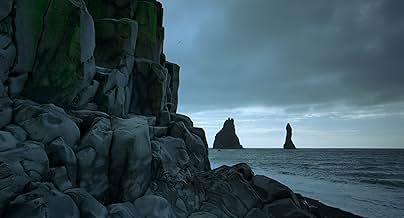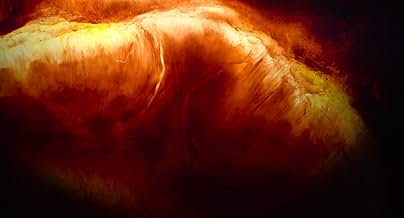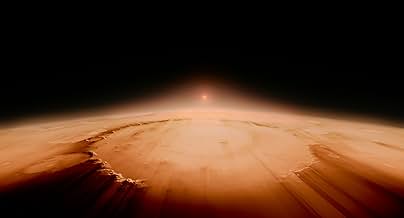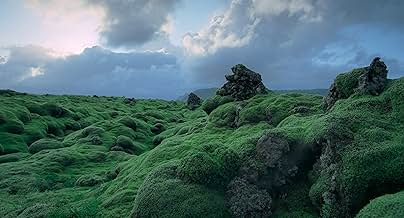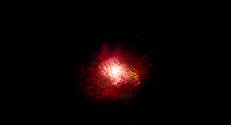CALIFICACIÓN DE IMDb
7.0/10
3.2 k
TU CALIFICACIÓN
Examina los orígenes del universo, incluido el comienzo de la vida en la Tierra.Examina los orígenes del universo, incluido el comienzo de la vida en la Tierra.Examina los orígenes del universo, incluido el comienzo de la vida en la Tierra.
- Dirección
- Guionista
- Elenco
- Premios
- 1 nominación en total
Theo Bongani Ndyalvane
- Early Human
- (as Theophilus Bongani Ndyalvane)
- Dirección
- Guionista
- Todo el elenco y el equipo
- Producción, taquilla y más en IMDbPro
Opiniones destacadas
Nothing new, visually or otherwise. It's not even boring, it's just plain dull and unengaging. Watched it on MUBI and the best they could do apparently was 1080p, so I got to see all the artefacts and downsampling that just rendered it practically unwatchable. Just watch BBC's Planet Earth or Cosmos instead.
As a scientist myself I enjoy this type of documentaries. I have watched plenty of documentary series on the universe and I always search for more bcs my kids like them as well. I can say without any hesitation that this was one of the worst I have ever watched. Very dull and boring
Zero explanation.
I have watched youtube videos far more interesting.
I did not watch it on IMAX. Maybe there ,the cinematic experience would be better.
But on TV is is almost unbearable to watch.
I am really disappointed.
I have watched youtube videos far more interesting.
I did not watch it on IMAX. Maybe there ,the cinematic experience would be better.
But on TV is is almost unbearable to watch.
I am really disappointed.
Not short enough to be a short and not long enough to be a feature, Terrence Malick's "Voyage of Time", (subtitled, 'The IMAX Experience' to give you an idea what kind of screen you should see it on), is like an extended sequence from "The Tree of Life" or outtakes from "2001; A Space Odyssey" and is visually superb as we might expect from Malick but it's hardly informative and even at 46 minutes is just as likely to bore as to enthrall.
Brad Pitt is the narrator who asks us do we ever wonder where we came from when we look at the stars or when did dust become life. Malick doesn't tell us and you will almost certainly get more information from a David Attenborough documentary than from this. That said, it looks amazing in ways that even Attenborough can't match and to Malick's credit he does ponder 'big' questions as if the asking itself is enough to satisfy the lack of an answer and anyone remotely interested in the visual power of cinema won't want to miss it and yes, see it on the biggest screen possible. There's also a 90 minute version, narrated by Cate Blanchet, and still awaiting a release.
Brad Pitt is the narrator who asks us do we ever wonder where we came from when we look at the stars or when did dust become life. Malick doesn't tell us and you will almost certainly get more information from a David Attenborough documentary than from this. That said, it looks amazing in ways that even Attenborough can't match and to Malick's credit he does ponder 'big' questions as if the asking itself is enough to satisfy the lack of an answer and anyone remotely interested in the visual power of cinema won't want to miss it and yes, see it on the biggest screen possible. There's also a 90 minute version, narrated by Cate Blanchet, and still awaiting a release.
How do you condense the story of the universe into just 45 minutes? Well, you need:
I think this mostly works. It really does aim to encompass as much as it can in less than an hour, all with the patient pacing most Malick films have. It makes for an interesting experience. Sometimes, it feels a little too abstract, but other moments are quite powerful.
Still, it feels like a companion piece to Tree of Life, and almost like an extended version of that film's birth of the universe sequence. I don't think it's nearly as powerful as that sequence in that film, but it scratches a similar itch. Parts near the end reminded me a little of Koyaanisqatsi, too. It's also not nearly as good an exploration of Planet Earth and its inhabitants as that iconic documentary is.
But for any grievances I have, this documentary/art film is still very impressive. I know something would have been lost from having watched it at home, too, instead of an IMAX screen, so I'm willing to be a little more generous when it comes to rating this.
- Poetic and vague voiceover narration from Brad Pitt
- Beautiful images
- A keen ear for music to match to said images, and
- To be Terrence Malick
I think this mostly works. It really does aim to encompass as much as it can in less than an hour, all with the patient pacing most Malick films have. It makes for an interesting experience. Sometimes, it feels a little too abstract, but other moments are quite powerful.
Still, it feels like a companion piece to Tree of Life, and almost like an extended version of that film's birth of the universe sequence. I don't think it's nearly as powerful as that sequence in that film, but it scratches a similar itch. Parts near the end reminded me a little of Koyaanisqatsi, too. It's also not nearly as good an exploration of Planet Earth and its inhabitants as that iconic documentary is.
But for any grievances I have, this documentary/art film is still very impressive. I know something would have been lost from having watched it at home, too, instead of an IMAX screen, so I'm willing to be a little more generous when it comes to rating this.
Finally watching this just as Mr. Malick intended (he deserves a Mister after his long and monolithic career, probably), on... MUBI. Well, it's the only way to watch this version (for now)! Why isn't this playing on National Cinema Day? Oh, well, let's go on this voyage and see what time I gain in 45 minutes...
(later) Wow, that was not the quickest nor the slowest 45 minutes of my life. It is... 45 minutes! It went by fully in exactly that amouny of time because of the grandeur on display that Malick and his special effects wizards conjure so vividly and ecstatically - Dan Glass the supervisor, who also worked a lot for better or worse with the Wachowskis in this century - to do nothing else but put you into awe at IMAX-frames per second. And I'd love to see it the intended format someday, if the opportunity presented itself, since it's without doubt the director and his team made this for the largest 20 foot story screens with a few dozen speakers and tracks going to blast you into the entire sonic symphony of the choral voices and orchestral majesty that this also puts you in.
This is easily criticized for being just more of the same that we saw with a human story in the context of The Tree of Life, and I dont doubt on some level Malick sees Voyage as another experiment in compliment of but not directly connected to that film (I admittedly haven't seen the other cut, it seems unavailable in the US for now). But that is also what makes Voyage in Time special as a pure shot of philosophical-poet-visual Planetarium-Maximus. These filmmakers mean to do nothing short of putting you into a context that you can't fully comprehend but you still feel anyway as... this is where it starts.
Everything, as in, the universe colliding upon itself this way and that through particles and gasses and things that would require an astronomer to unpack and even then what's the use when it's all on randomness and improbable chaos, and then what that leads to on Earth as the beginnings of life and death take hold. There are many arresting, bombastic images and Tableaus (and dinosaurs!) and so little time relatively to cover it all, not just in the space of how long the Earth has been here, but in comparison with other IMAX films, which this clocks as average. Yet the intensity of the spectacle, the thoughtfulness, comes not from Pitt's narration, which is written to be as blunt about the absolutism of Malick's ideology of nature's boundless forces and how humanity will never stop taking it for granted (or, conversely, can simply appreciate it more), but from the mere showing of all this itself.
To go back to my earlier point with Tree of Life, it's the scale and spectacle of what the universe does in its own cosmic poetical ways, about (hold laughter please) our caring and empathy for the planet to be paramount and our societies connecting back to what chaotic particles wrought, and given what is happening to nature in the world at present (hottest year recorded, ever), that should stop us in our tracks. And it does. This is all to say Voyage in Time is impressive most as an appreciation by the Grand Old Pure Hippie of American cinema (pure in his connection to the roots of the planet and Space and time, not the consumerist or druggie aspects) and if it stops short at a point where it could keep going it may just be for the best.
Aided by some astoundingly gifted collaborators, and some nifty IMAX 70mm film stock, it's best to temper your expectations depending on who you are - it isn't the Grand consciousness-expanding opera of Tree of Life (nor does it have that film's spots of ostentatious excesses), and it isn't the big PLANETS documentary you see in 4K with a stuffy British Narrator. It is... somewhere in between as an epic transcendentalist waking dream with eyes and ears opens and electrified in the experimental bliss and simple wisdom it unfurls, and I'm satisfied.
(later) Wow, that was not the quickest nor the slowest 45 minutes of my life. It is... 45 minutes! It went by fully in exactly that amouny of time because of the grandeur on display that Malick and his special effects wizards conjure so vividly and ecstatically - Dan Glass the supervisor, who also worked a lot for better or worse with the Wachowskis in this century - to do nothing else but put you into awe at IMAX-frames per second. And I'd love to see it the intended format someday, if the opportunity presented itself, since it's without doubt the director and his team made this for the largest 20 foot story screens with a few dozen speakers and tracks going to blast you into the entire sonic symphony of the choral voices and orchestral majesty that this also puts you in.
This is easily criticized for being just more of the same that we saw with a human story in the context of The Tree of Life, and I dont doubt on some level Malick sees Voyage as another experiment in compliment of but not directly connected to that film (I admittedly haven't seen the other cut, it seems unavailable in the US for now). But that is also what makes Voyage in Time special as a pure shot of philosophical-poet-visual Planetarium-Maximus. These filmmakers mean to do nothing short of putting you into a context that you can't fully comprehend but you still feel anyway as... this is where it starts.
Everything, as in, the universe colliding upon itself this way and that through particles and gasses and things that would require an astronomer to unpack and even then what's the use when it's all on randomness and improbable chaos, and then what that leads to on Earth as the beginnings of life and death take hold. There are many arresting, bombastic images and Tableaus (and dinosaurs!) and so little time relatively to cover it all, not just in the space of how long the Earth has been here, but in comparison with other IMAX films, which this clocks as average. Yet the intensity of the spectacle, the thoughtfulness, comes not from Pitt's narration, which is written to be as blunt about the absolutism of Malick's ideology of nature's boundless forces and how humanity will never stop taking it for granted (or, conversely, can simply appreciate it more), but from the mere showing of all this itself.
To go back to my earlier point with Tree of Life, it's the scale and spectacle of what the universe does in its own cosmic poetical ways, about (hold laughter please) our caring and empathy for the planet to be paramount and our societies connecting back to what chaotic particles wrought, and given what is happening to nature in the world at present (hottest year recorded, ever), that should stop us in our tracks. And it does. This is all to say Voyage in Time is impressive most as an appreciation by the Grand Old Pure Hippie of American cinema (pure in his connection to the roots of the planet and Space and time, not the consumerist or druggie aspects) and if it stops short at a point where it could keep going it may just be for the best.
Aided by some astoundingly gifted collaborators, and some nifty IMAX 70mm film stock, it's best to temper your expectations depending on who you are - it isn't the Grand consciousness-expanding opera of Tree of Life (nor does it have that film's spots of ostentatious excesses), and it isn't the big PLANETS documentary you see in 4K with a stuffy British Narrator. It is... somewhere in between as an epic transcendentalist waking dream with eyes and ears opens and electrified in the experimental bliss and simple wisdom it unfurls, and I'm satisfied.
¿Sabías que…?
- TriviaTwo versions were made: a 45-minute IMAX version with Brad Pitt narrating and a 90-minute 35mm version with Cate Blanchett narrating, titled Voyage of Time: Life's Journey (2016). As of 2021, the "Life's Journey" version has yet to be released in the United States.
- Versiones alternativasTwo versions were made: a 45-minute IMAX version with Brad Pitt narrating and a 90-minute 35mm version with Cate Blanchett narrating, titled Voyage of Time: Life's Journey (2016).
- ConexionesVersion of Voyage of Time: Life's Journey (2016)
- Bandas sonorasSymphony No. 9 in D Minor ('Choral')
Composed Ludwig van Beethoven
Performed by Nicolaus Esterházy Sinfonia and Chorus
Conducted by Bela Drahos
Courtesy of Naxos
By arrangement with Source/Q
Selecciones populares
Inicia sesión para calificar y agrega a la lista de videos para obtener recomendaciones personalizadas
- How long is Voyage of Time?Con tecnología de Alexa
Detalles
- Fecha de lanzamiento
- País de origen
- Sitio oficial
- Idioma
- También se conoce como
- Voyage of Time: An IMAX Documentary
- Productoras
- Ver más créditos de la compañía en IMDbPro
Taquilla
- Total en EE. UU. y Canadá
- USD 55,409
- Fin de semana de estreno en EE. UU. y Canadá
- USD 55,409
- 9 oct 2016
- Total a nivel mundial
- USD 337,038
- Tiempo de ejecución44 minutos
- Color
Contribuir a esta página
Sugiere una edición o agrega el contenido que falta







